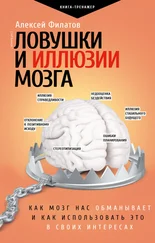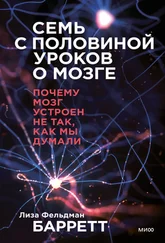O’Carroll R. E., Drysdale E., Cahill L. et al. Memory for emotional material: A comparison of central versus peripheral beta blockade // Journal of Psychopharmacology. 1999a. Vol. 13. P. 32–39.
O’Carroll R. E., Drysdale E., Cahill L. et al . Stimulation of the noradrenergic system enhances and blockade reduces memory for emotional material in man // Psychological Medicine. 1999b. Vol. 29. P. 1083–1088.
Ochsner K. N . Are affective events richly recollected or simply familiar? The experience and process of recognizing feelings past // Journal of Experimental Psychology: General. 2000. Vol. 129. P. 242–261.
Ochsner K. N., Schacter D. L . Constructing the emotional past: A social-cognitive-neuroscience approach to emotion and memory // The neuropsychology of emotion / ed. by J. Borod. N. Y.: Oxford University Press, 2000. P. 163–193.
Offer D., Kaiz M., Howard K. I., Bennett E. S. The altering of reporting experiences // Journal of the American Academy of Child and Adolescent Psychiatry. 2000. Vol. 39. P. 735–742.
Ofshe R. J . Inadvertent hypnosis during interrogation: False confession due to dissociative state; Misidentified multiple personality and the satanic cult hypothesis // International Journal of Clinical and Experimental Hypnosis. 1992. Vol. 40. P. 125–156.
Okuda J., Fujii T., Yamadori A. et al . Participation of the prefrontal cortices in prospective memory: Evidence from a PET study in humans // Neuroscience Letters. 1998. Vol. 253. P. 127–130.
Orwell G . 1984. N. Y.: Signet Classic, 1950/1984.
Paley W . Natural theology. Charlottesville, Va.: Lincoln Rembrandt Publishing, 1802/1986.
Park D. C., Kidder D. P. Prospective memory and medication adherence // Prospective memory: Theory and applications / Eds. M. Brandimonte, G. O. Einstein, M. A. McDaniel. Mahwah, N. J.: Erlbaum Associates, 1996. P. 369–390.
Parkes C. M . Bereavement: Studies of grief in adult life. London: Tavistock, 1986.
Paulesu E., Frith C. D., Frackowiak R. S. J. The neural correlates of the verbal component of working memory // Nature. 1993. Vol. 362. P. 342–345.
Pawlowski B., Dunbar R. L M., Lipowicz A . Tall men have more reproductive success // Nature. 2000, January 13. Vol. 403. P. 156.
Pendergrast M . Victims of memory: Incest accusations and shattered lives. Hinesburg, Vt.: Upper Access, 1995.
Pennebaker J. W . Writing about emotional experiences as a therapeutic process // Psychological Science. 1997. Vol. 8. P. 162–166.
Perfect T. J., Hanley J. R . The tip-of-the-tongue phenomenon: Do experimenter— presented interlopers have any effect? // Cognition. 1992. Vol. 45. P. 55–75.
Perrett D. L., Hietanen J. K., Oram M. W., Benson P. J . Organization and functions of cells responsive to faces in the temporal cortex // Philosophical Transactions of the Royal Society of London (Series B). 1992. Vol. 335. P. 23–30.
Peterson L. R., Peterson M. J . Short-term retention of individual verbal items // Journal of Experimental Psychology. 1959. Vol. 58. P. 193–198.
Peterson C., Bell M . Children’s memory for traumatic injury // Child Development. 1996. Vol. 67. P. 3045–3070.
Petro S. J., Herrmann D., Burrows D., Moore C. M . Usefulness of commercial memory aids as a function of age // International Journal of Aging and Human Development. 1991. Vol. 33. P. 295–309.
Pezdek K . Memory for pictures: A life-span study of the role of visual detail // Child Development. 1997. Vol. 58. P. 807–815.
Phelps E., Gazzaniga M. S . Hemispheric differences in mnemonic processing: The effects of left hemisphere interpretation // Neuropsychologia. 1992. Vol. 30. P. 293–297.
Phelps E. A., LaBar K. S., Anderson A. K. et al . Specifying the contributions of the human amygdala to emotional memory: A case study // Neurocase. 1998. Vol. 4. P. 527–540.
Pierce C. P . Hard to forget: An Alzheimer’s story. N. Y.: Random House, 2000.
Pinker S . Evolutionary psychology: An exchange // New York Review of Books. 1997a. Vol. 44. P. 55–58.
Pinker S . How the mind works. N. Y.: W. W. Norton, 1997b.
Plude D. J., Schwartz L. K . Compact disc-interactive memory training with the elderly // Educational Gerontology. 1996. Vol. 22. P. 507–521.
Pollitt K . «Finality» or justice? // The Nation. 1999, 18 October. Vol. 269. P. 10.
Poole D. A., Lindsay S. D., Memon A., Bull R . Psychotherapy and the recovery of memories of childhood sexual abuse: U.S. and British practitioners’ opinions, practices, and experiences // Journal of Consulting and Clinical Psychology. 1995. Vol. 63. P. 426–487.
Poole D. A., Lindsay D. S . Interviewing preschoolers: Effects of nonsuggestive techniques, parental coaching, and learning questions on reports of nonexperienced events // Journal of Experimental Child Psychology. 1995. Vol. 60. P. 129–154.
Porter S., Yuille J. C., Lehman D. R . The nature of real, implanted, and fabricated memories for emotional childhood events: Implications for the recovered memory debate // Law and Human Behavior. 1999. Vol. 23. P. 517–537.
Posner M. I., Raichle M. E . Images of the mind. N. Y.: Scientific American Library, 1994.
Price J. L., Morris J. C . Tangles and plaques in nondemented aging and «preclinical» Alzheimer’s disease // Annals of Neurology. 1999. Vol. 45. P. 358–368.
Prospective memory: Theory and practice / Eds. M. Brandimonte, G. O. Einstein, M. McDaniel. Mahwah, N. J.: Erlbaum Associates, 1996.
Purdon C . Thought suppression and psychopathology // Behaviour Research and Therapy. 1999. Vol. 37. P. 1029–1054.
Raichle M. E., Fiez J. A., Videen T. O. et al . Practice-related changes in human brain functional anatomy during nonmotor learning // Cerebral Cortex. 1994. Vol. 4. P. 8–26.
Rapcsak S. Z., Reminger S. L., Glisky E. L. et al . Neuropsychological mechanisms of false facial recognition following frontal lobe damage // Cognitive Neuropsychology. 1999. Vol. 16. P. 267–292.
Rastle K. G., Burke D. M . Priming the tip of the tongue: Effect of prior processing on word retrieval in young and older adults // Journal of Memory and Language. 1996. Vol. 35. P. 586–605.
Rauch S. L., van der Kolk B. A., Fisler R. E. et al. A symptom provocation study of posttraumatic stress disorder using positron emission tomography and script-driven imagery // Archives of General Psychiatry. 1996. Vol. 35 (3). P. 380–387.
Read J. D., Bruce D . Longitudinal tracking of difficult memory retrievals // Cognitive Psychology. 1982. Vol. 14. P. 280–300.
Recollections of trauma: Scientific research and clinical practice / Eds. J. D. Read, D. S. Lindsay. N. Y.: Plenum Press, 1997.
Reason J. T., Mycielska K. Absent-minded? The psychology of mental lapses and everyday errors. Englewood Cliffs, N. J.: Prentice-Hall, 1982.
Reason J. T., Lucas D . Using cognitive diaries to investigate naturally occurring memory blocks // Everyday memory, actions and absentmindedness / Eds. J. E. Harris, P. E. Morris. Orlando, Fla.: Academic Press 1984. P. 53–69.
Recovered memories and false memories / Ed. by M. A. Conway. Oxford: Oxford University Press, 1997.
Rebok G. W., Rasmusson D. X., Bylsma F. W., Brandt J . Memory improvement tapes: How effective for elderly adults? // Aging, Neuropsychology, and Cognition. 1997. Vol. 4. P. 304–311.
Reed G. The psychology of anomalous experience (rev. ed.). Buffalo, N. Y.: Prometheus Books, 1988.
Читать дальше
Конец ознакомительного отрывка
Купить книгу






![Диана Соул - Семь грехов лорда Кроули [publisher - ИДДК, с оптимизированной обложкой]](/books/395522/diana-soul-sem-grehov-lorda-krouli-publisher-id-thumb.webp)




